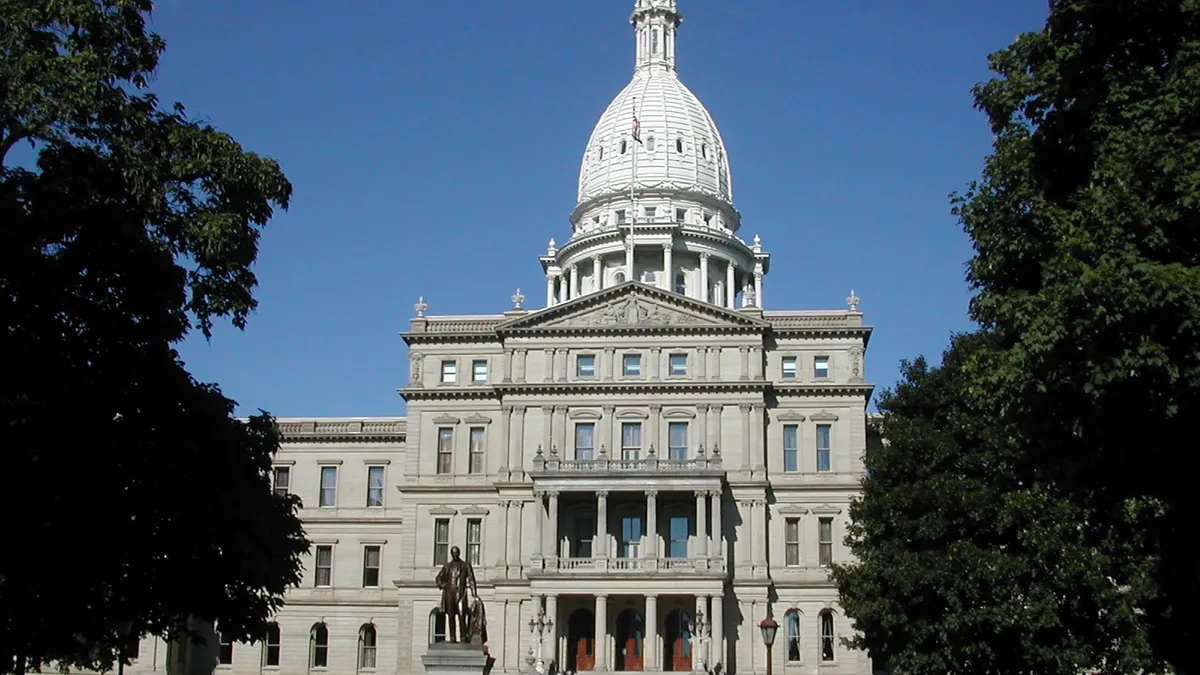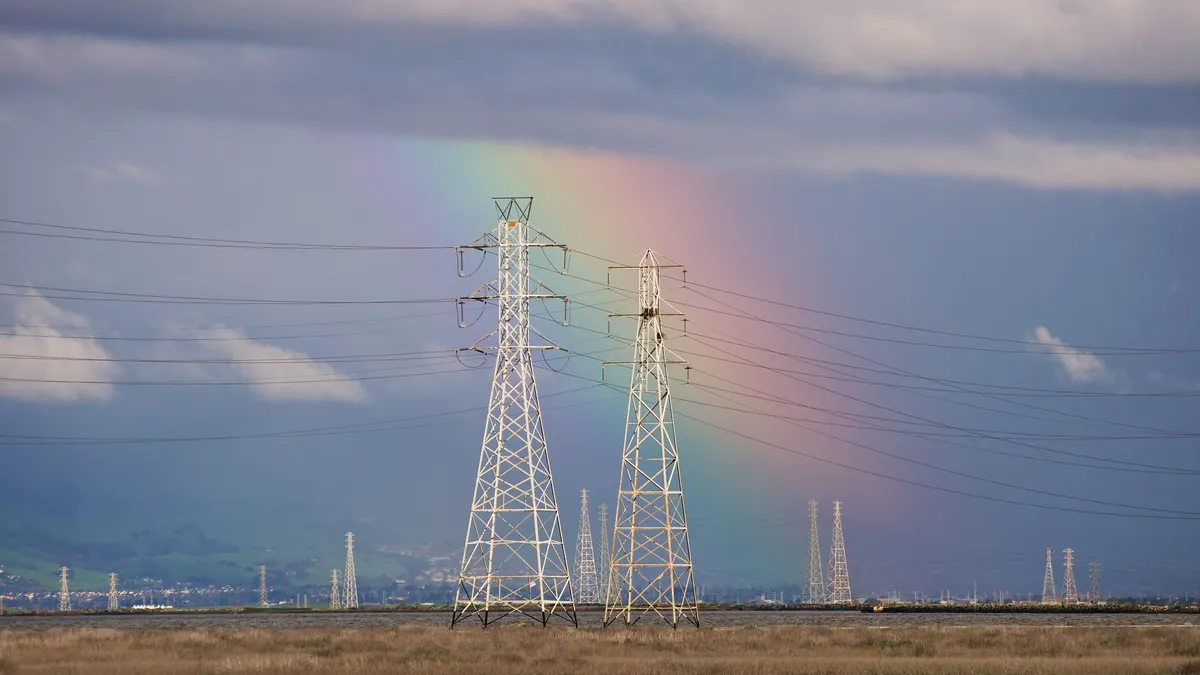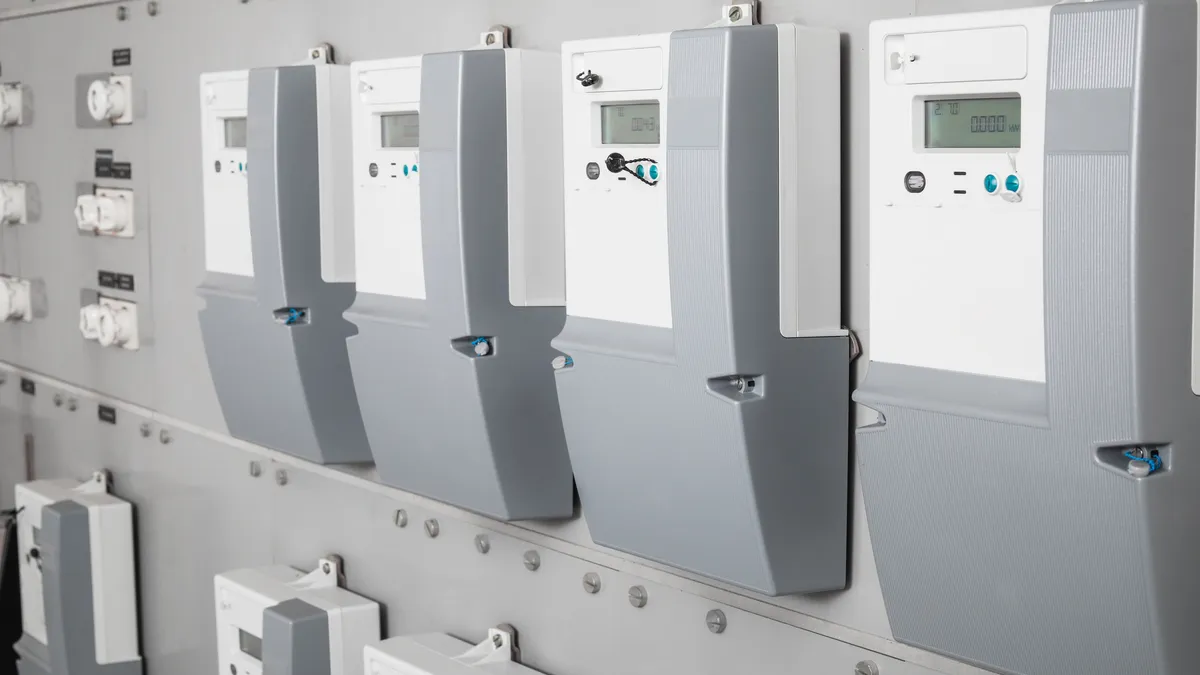Dive Brief:
- A wide-ranging group of critics protested energy legislation proposed by Michigan lawmakers, warning that a range of policies and deficiencies in two bills could cost consumers $4 billion over the next 10 years, MLive reports.
- The Michigan Environmental Council says most of that cost comes from the failure to use smart meters as a way to reduce peak demand, which cost the state some $2.2 billion. A failure to leverage low renewable prices also plays a factor.
- The bill addresses the state's 10% choice market and has diverse critics, but this week Consumers Energy's incoming president and CEO Patti Poppe supported the measures saying "Michigan's electric reliability is now at risk."
Dive Insight:
The battle over Michigan proposals to overhaul the state's energy sector is heating up, and this week a diverse group of critics joined forces to oppose the changes while the head of Consumers Energy backed them.
"The only thing we all agree to here is we don't want this bill," Pete Lund, state director of Americans for Prosperity, said at a press conference this week, according to Mlive.com. Also involved in the protest against the bills: Michigan Environmental Council, not usually bedfellows with the conservative lobbyist group.
"We see this costing Michigan ratepayers over $4 billion over the next 10 years," said MEC Policy Director James Clift.
The bills, S.B. 438 and S.B. 437, establish a 35% clean energy goal by 2025, maintain the state choice cap but make other changes to the program, and phase out an efficiency program. The state's choice program has been particularly problematic, with utilities arguing it prevents them from assessing load and maintaining grid reliability.
"We've heard from the federal grid operator that Michigan's electric reliability is now at risk," Consumers CEO-elect Patti Poppe said in a statement this week, urging lawmakers to pass the bills.
"Market supplies are tightening and electric costs for retail open access customers are increasing," said Poppe. The bills would "prevent reliability problems, ensure investment in Michigan's energy infrastructure and eliminate an unfair cost-shifting subsidy that's currently in place when it comes to paying for the electric grid."
Michigan Environmental Council is opposed to a proposed 30% clean energy goal by 2025—because it would be met by energy efficiency and renewable energy, and would phase out a state program specifically for efficiency.
"The existing renewable energy standard has attracted $3 billion in investment and supports 87,000 clean energy jobs in Michigan," the group said in a statement last month. "Energy efficiency programs save ratepayers more than $4 for every dollar invested—a total savings of more than $100 million every year."

















